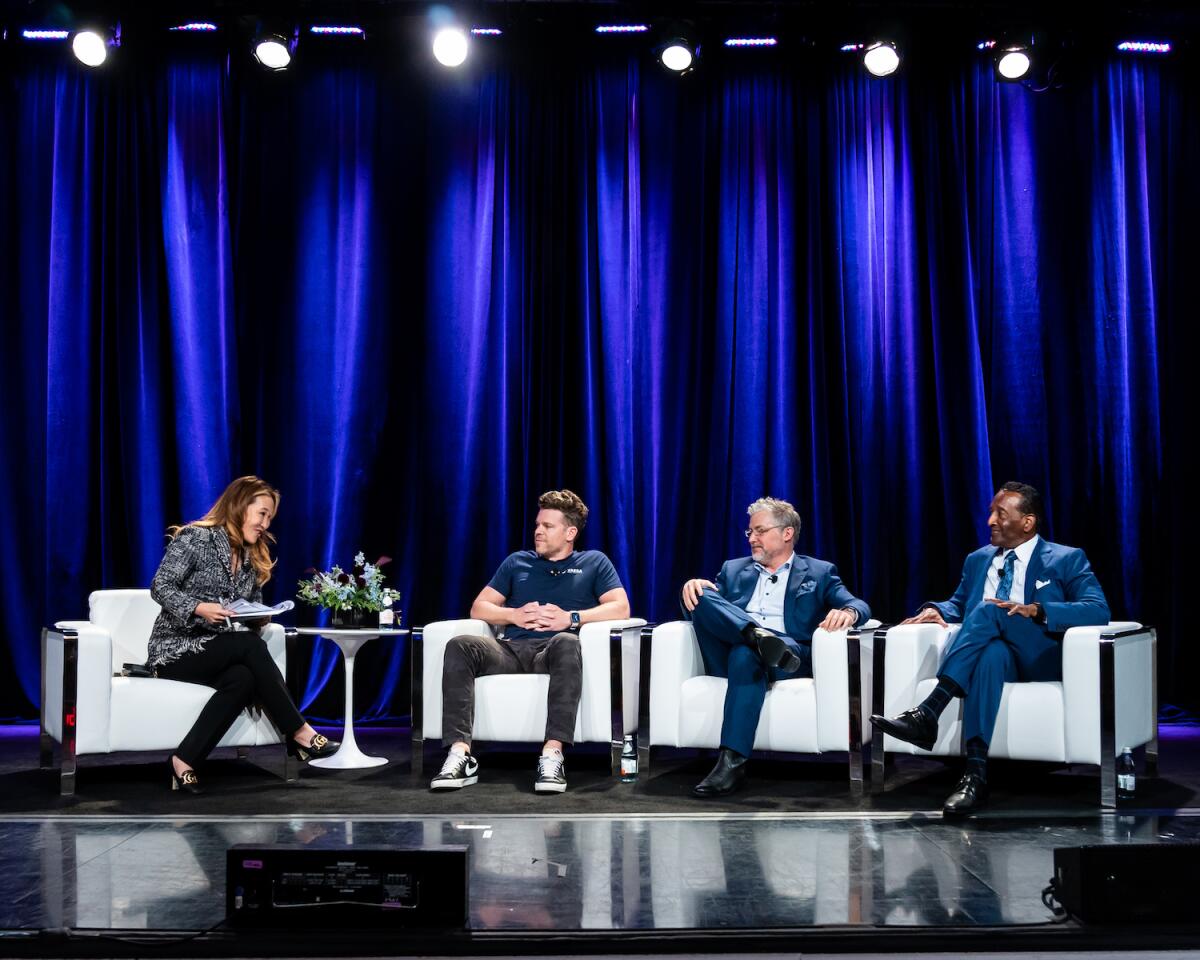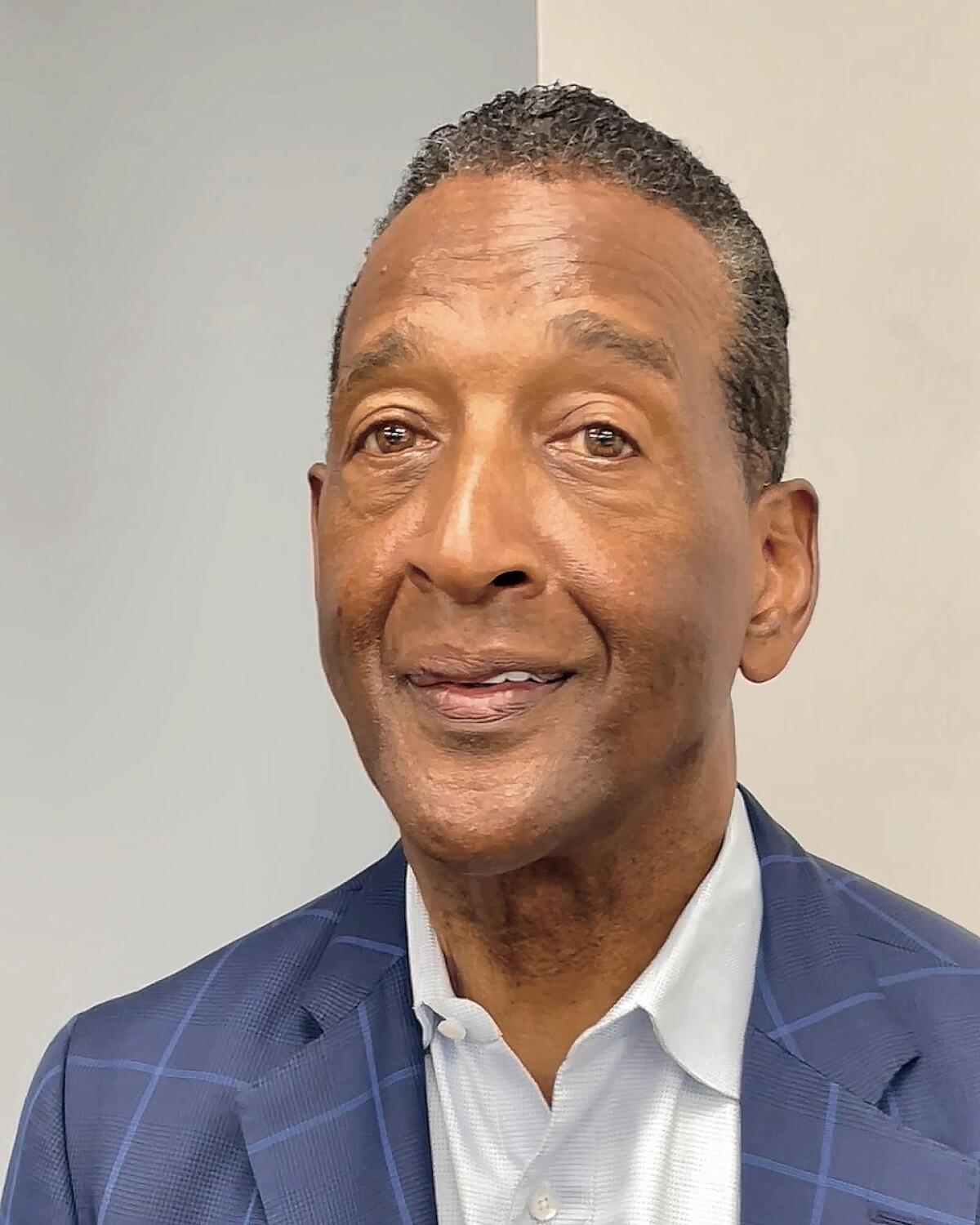Visionary Thought Leaders Discuss AI and the Legal Profession

During the In-House Counsel Awards presentation, attendees were treated to an expansive and fascinating conversation about one of the hottest topics affecting the legal world and beyond: the adoption and proliferation of AI in the commercial sphere. The panel was filled by three visionary experts on the topic: Dan Czerwonka of Varda Space Industries, Joshua Walker of System Legal, and Robert W. Brown of UWLA, and was moderated by Gloria Lee of Rutan & Tucker, LLP. Below are their bios and the need-to-know insights from the discussion.

Moderator: Gloria Lee
Client Relations Partner
Rutan and Tucker, LLP
Gloria Lee is the client relations partner of Rutan & Tucker, LLP, one of California’s largest full-service law firms. She has been named a Super Lawyer for 10 years and one of Southern California’s most powerful and influential leaders by the California Diversity Council. Lee is a graduate of Stanford University and UC Berkeley School of Law. In addition to serving on several national nonprofit boards, she serves on the public company board of directors for Hanmi Bank.
Panelists

Robert W. Brown
President
University of West Los Angeles
Robert Brown is the president of the University of West Los Angeles and its School of Business and School of Law. UWLA offers access to opportunities in higher education for those from disadvantaged socioeconomic backgrounds. During Brown’s tenure, he’s overseen an overhaul of the university’s mode of providing quality legal and business education - effectively democratizing education.

Joshua Walker
CEO and author of “On Legal AI”
System.Legal
Joshua Walker is the CEO of System.Legal and the author of “On Legal AI” (Fastcase 2019). He also co-founded and originally led Lex Machina and CodeX: The Stanford Center for Legal Informatics. He received his A.B. from Harvard and his J.D. from The University of Chicago Law School. Walker has been trying to use data and law to help folks since he was fifteen, starting with human rights projects in Bosnia, Northern Ireland, and Rwanda.

Dan Czerwonka
General Counsel
Varda Space Industries
Dan is the General Counsel of Varda Space Industries, the newest space start-up from Peter Thiel’s Founder’s Fund that will be launching its first spacecraft on June 10. Prior to joining Varda, he spent several years overseas building Zipline, the first drone company to achieve unicorn status and currently valued at $3 billion. Today, Zipline delivers thousands of critical medical supplies daily in eight countries on three continents.
Shared Insights from the Event
How is AI affecting the practice of law in which you work?
Brown: In the education industry, we’re trying to determine what the impacts are going to be. Ironically among educators, believe it or not, it’s very difficult to break down the resistance to AI. So one of the first things that I did was convene a meeting with our faculty to challenge them on how we should employ AI into our curriculums so that we can help our students.
Walker: This has been a long time coming. We’ve been seeing AI applications in litigation and contracts for maybe 10 years, 15 years, or so. But I think there’s a storm coming - there are some changes that are going to be happening and you have to maintain the best of what you’re doing and be very cuttingedge of what’s going on.
Czerwonka: As a large language model, AI is only as good as what it takes in - a lot of times it can give you really interesting things that sound right, but they’re actually just flat wrong. You can have it draft a form for you and it likely gets 60% right, but then you still have to go in and put in what you want.
How do regulators expect to keep up with the speed and scale of AI in real time?
Walker: I think that there’s big dangers with regulation. One is overregulating - if you regulate something too much, you can wipe out trillions of dollars of economic activity. The other side is not regulating at all, and you have dangers for kids and other people who are vulnerable - these programs speak with great authority.
Brown: Part of the problem with AI right now is that it’s still in such infancy that we don’t know which parts of our lives are really going to be affected. So, It’s first and foremost trying to determine how it is going to evolve. What are the implications of AI when it comes to intellectual property and privacy concerns, both corporate and personal?
Czerwonka: On a business level, the first thing I would say is to anonymize what you put into any prompt, whether it’s your data or your clients’ data. This is doubly true of trade secrets or any other sensitive data. The other issue is that if you want to maintain trade secrecy, it has to, of course, stay a secret. So if you put it into a program like AI and other people see it, then you’ve lost that advantage.
Walker: Engineers in South Korea have been using ChatGPT to redesign proprietary circuitry - apparently, it did a really good job. But unfortunately, that specialized data is taken and it goes back into this gristmill that is used to help the AI work better in the future. AI is just math, and that data is the information that it’s ingesting.
Are there any real fears to face when it comes to AI implementation?
Czerwonka: I think GPT and AI programs are going to just support lawyers, and I don’t think there’s anything to be afraid of in the legal world. If we’re talking about the bigger picture, I think it is kind of interesting that AI has figured out how to ask third-party programs to hire people to do things that the program itself is not allowed to do - that’s pretty weird, and I don’t know where that goes.
Walker: There’s no question If lawyers just bury our heads in the sand and ignore this stuff, I think that’s dangerous. The other big fear I have is that we don’t. If we don’t grasp our ability to help people much more and at a much better scale - according to analysts, 80% of legal demand in California is not met. So if you have a super machine that’s going to improve your ROI or your ability to deliver for your corporate clients you have to use it - but also we have to think about how to do that responsibly.
What are some other examples of how our audience can take advantage of these technologies?
Brown: Bringing our professors up to speed on how to actually teach the law or teach business, as in the case in our business school, there’s a pedagogy that goes along with actually learning how to teach, and I think that AI will be very instrumental in helping our professors. There are a lot of people who are subject matter experts, but perhaps don’t have great teaching skills. I believe that AI will be very effective and instrumental in bringing those subject matter experts up to speed on how to actually be a professor.
Walker: A lot of the big traditional New York law firms have started to use AI much more productively now, and I think that’s a sea change. If you can get your prices down, you can do twice as much work. Audit companies and consulting companies can review contracts about eight times faster now - actually, it’s probably more than that. If you can be eight times more productive for the second- and third-year associate level, you kind of have to do it. In the long run, it’s dangerous not to take advantage of that.